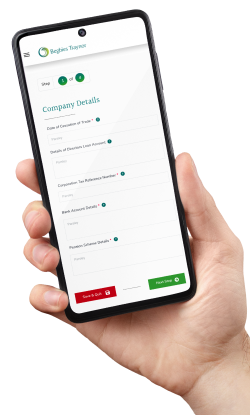When a company goes into liquidation, the end result is that it will be struck off the Companies House register and therefore cease to exist as a legal entity. In effect, all debts belonging to the company at the time of the liquidation die with the company.
If you are owed money by a company which is currently undergoing a formal liquidation procedure, you should ensure the appointed insolvency practitioner is aware of the outstanding debt owed to you or your company so that you can be registered as a known creditor.
As part of the liquidation process, the insolvency practitioner will arrange for any assets the company holds to be identified before being sold - or 'liquidated' - to realise as much money as possible. The money generated from this process is used to repay creditors, but because of the company’s poor financial position when entering liquidation, it’s rare for all creditors to receive repayment.
A payment hierarchy exists for the creditors of a liquidated business in the UK - secured creditors are at the top and unsecured creditors at the bottom.
Concerned about the National Insurance increase?
For the 2024-25 tax year, the rate of employer National Insurance increases from 13.8% to 15% adding yet more pressure onto already squeezed cash flows. If you are worried about the impact this could have on your company’s finances, talk to the experts at UK Liquidators. As licensed insolvency practitioners we can explain your options and help you plot a way forward. Call today on 0800 063 9262.
When a liquidator is appointed they take over control of the company from directors, and invite all creditors to make a claim for monies owed. A public notice is also placed in the Gazette advertising the fact that the company is to be liquidated.
So if a company owes you money and they have entered liquidation you’ll need to file a claim with the liquidator, stating the amount you’re owed, whether you provided goods or services, and also provide any supporting documentation you may have - such as an invoice or contract - to validate your claim.
Depending on the information the insolvency company's directors have provided to the insolvency practitioner, you may already be listed as a creditor without having to to register your claim. However, it is good practice to make these enquiries as soon as you become aware a debtor is entering into formal insolvency proceedings to ensure your claim is documented.
As we mentioned earlier, when it comes to liquidation, all creditors as split into groups depending on the type of security they have over the insolvent company. There’s a specific hierarchy which must be followed when it comes to receiving repayment following a liquidation, and the group you’re in determines your likelihood of being paid.
Liquidation Portal
For Company Directors

The costs of the liquidation are the first to be paid out of the proceeds of asset sale. Remaining funds are then distributed to creditors in the following order:
Each category of creditor must be repaid in full before the liquidator can move on to the next group, unfortunately leaving unsecured creditors at serious risk of receiving no dividend at all from the liquidation process.
Start your online liquidation today
If you have decided liquidation is the right option for your limited company, you can take the first step and begin the process online using our online portal. Starting the process is quick, simple, and can be done at a time that suits you. Your information will be submitted to your local UK Liquidators insolvency practitioner who will be with you every step of the way. Click here to start your company’s liquidation online.
If a company which owes you money has already been liquidated, or a strike off application has successfully passed, then that company no longer exists as a legal entity. Any debt remaining when a company is liquidated or struck off essentially dies with the company.
As a creditor it is not possible for you to chase this debt from a dissolved company, unless the director provided a personal guarantee to secure this borrowing. If you believe the company had sufficient assets to repay you the money they owed, you can apply to the courts to have the dissolved company restored to the register.
A successful restoration application will result in the company being returned to the Companies House register, allowing you to recommence recovery efforts against the business. You have six years from the date of dissolution to restore a company to the register. Please note, company restoration does come with a cost and you will also be required to submit evidence that supports your application. Attempting to restore a company to the register is only recommended when you are sure that the company in question has the assets available to repay its liabilities.
If you would like more information on what to do if a liquidated company owes you money, UK Liquidators can help. We're liquidation specialists and will provide the trustworthy unbiased advice you need. Please call one of the team to arrange a free same-day consultation – we work from a wide network of offices throughout the UK.
By completing the test, you will receive:
If you are considering liquidation for your company, taking expert advice at an early stage is crucial. At UK Liquidators, our team of licensed insolvency practitioners are committed to providing limited company directors with the help and advice they need to make an informed decision.




Looking for immediate support?
Complete the below to get in touch